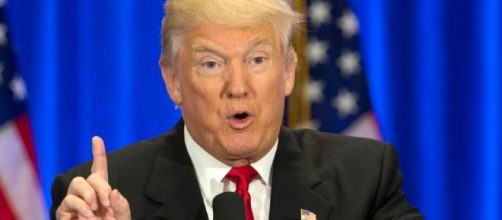When people have attacked trump and his forthcoming presidency, they have done so over his misogyny, his racism, or his xenophobic attitudes. What many commentators forgot was his economic policies, possibly because they were never really fleshed out but they struck a chord with voters. Rather than talking down to them from some idealised high, he talked to your average citizen on a level they could understand.
Trump's ideas
Many people who voted for Trump, and also who voted for Brexit in the UK, feel as if there is a liberal intelligentsia elite running politics and that this elite looks down on them and does not respect their issues and views.
They explain using academic resources why they need to follow certain economic plans, these ideas are the non-elite are told are too complicated for you to understand. As such when Trump offered up simple Economics, that could be grasped and promised to make the average person better off, why would they not believe the billionaire?
"If we do what we have to do correctly, we can create the biggest economic boom in this country since the New Deal when our vast infrastructure was first put in place. It's a no-brainer." Donald Trump stated this in his book "Crippled America", with such a simple statement he has already engaged listeners.
His plans may or may not work in the long-run but in the short-run, some should bring in more money to your average American.
He taps into the way the average American feels and uses this to influence his policies. Some American's feel that international trade has seen America's manufacturing base vanish off to cheaper foreign climes. This has resulted in higher unemployment and correspondingly lower wages. Trump's policy of protectionism and the dismantling of free trade agreements, then agrees with their thinking.
Trade policies
If he engages in protectionism and taxes Asian goods the way he would like to. We would indeed see a return to American manufacturing as companies no longer have a financial gain to making goods in Asia. This would then employ more people and as employment increases, so to would wages.
With this protectionism, we can add in his almost Keynesian idea of rebuilding America's infrastructure.
Infrastructure as a project is something everyone can see and if you increase your infrastructure projects, you increase the demand for workers. A higher demand for workers, the lower unemployment should be and as unemployment lowers, wages go up. Simple economics ideas that the public can grasp without a university degree.
American fears
He played into the fears of many Americans by arguing they pay too much tax. As such he vowed to remove income tax for those that earn $25,000 and $50,000 for married couples. This appeals to those on a low income as it means they would now be paying less in tax. In a simple economic view if the poor have slightly more money they spend it and do not hide it in a tax haven, as such there would now be more money in circulation, helping to grow the economy.
Again easy to understand.
Adding to this he suggested lowering corporation tax from 35% to 15%. This may seem a huge give away to the rich but his thinking was that many companies currently hide their profits in low tax havens. As such they may then bring this cash back to America, as much as $2.5trillion.
These policies may well not work but they make more sense to the public, than many socialist or neo-liberal models. Some just seem common-sense and that makes it easier to sell to the public. As it quite often comes down to the economy, dummy, it makes sense to make your policies seem straight forward and easy to follow.

